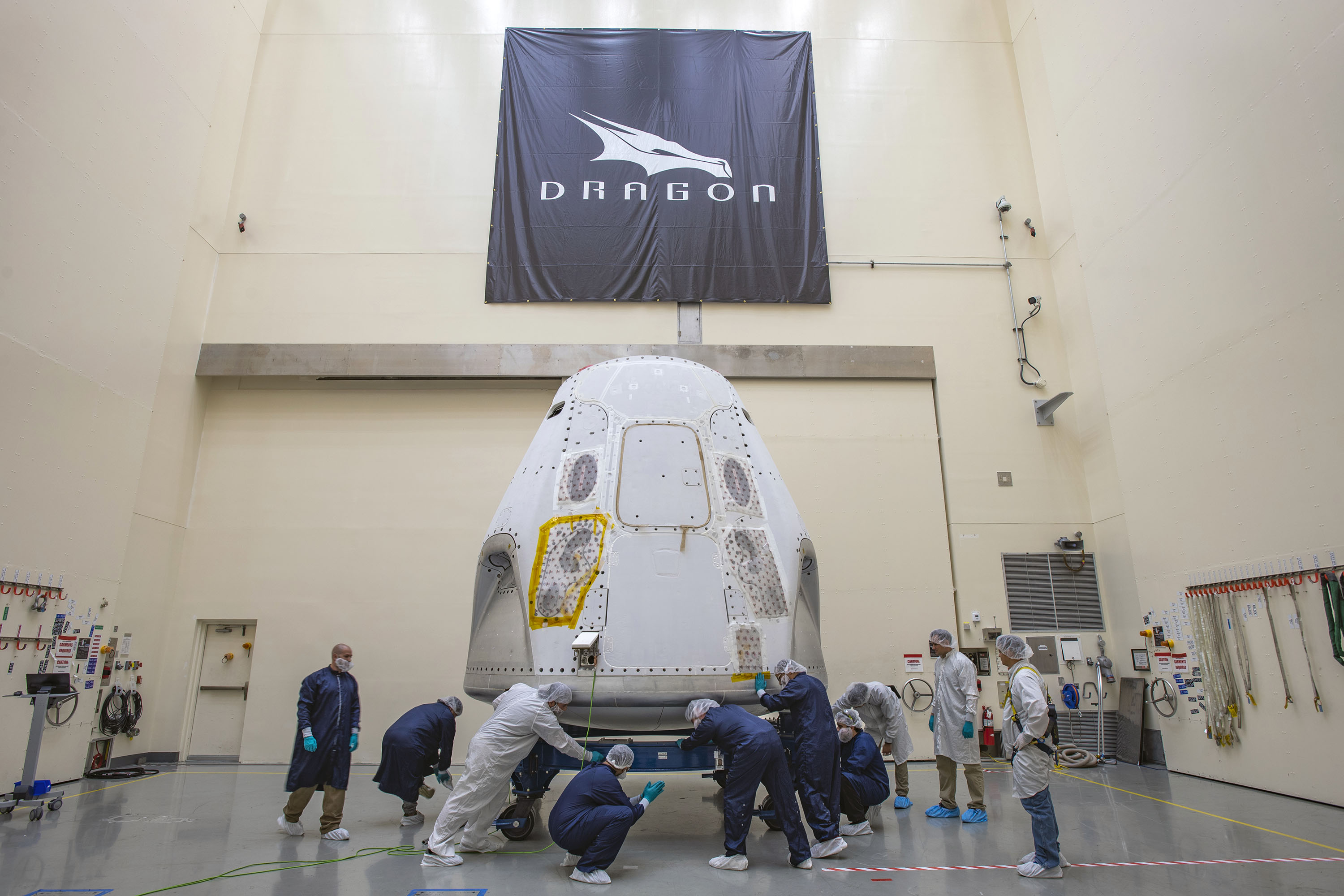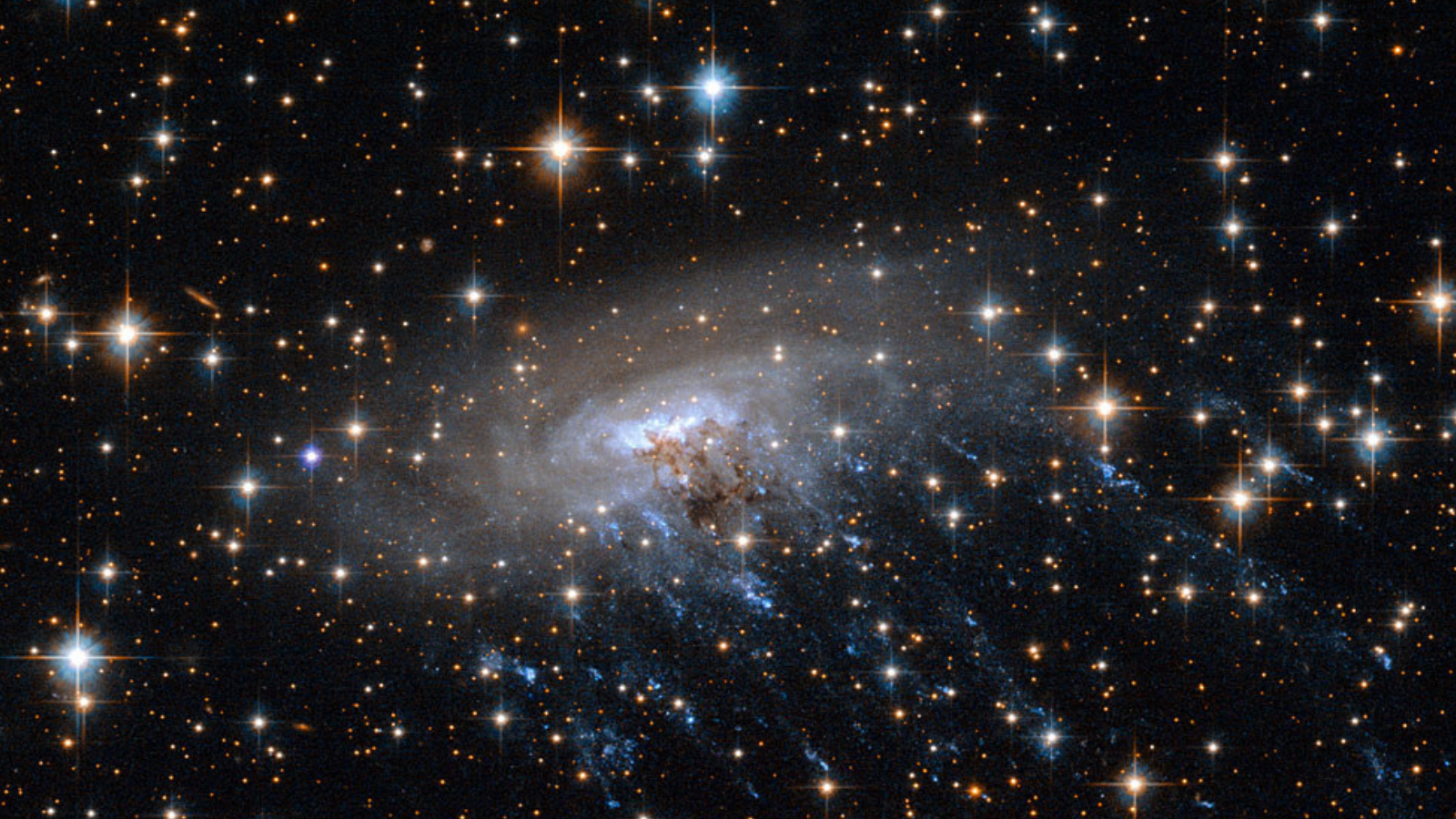SpaceX encounters problem just before Crew Dragon parachute test

Breaking space news, the latest updates on rocket launches, skywatching events and more!
You are now subscribed
Your newsletter sign-up was successful
Want to add more newsletters?

Delivered daily
Daily Newsletter
Breaking space news, the latest updates on rocket launches, skywatching events and more!

Once a month
Watch This Space
Sign up to our monthly entertainment newsletter to keep up with all our coverage of the latest sci-fi and space movies, tv shows, games and books.

Once a week
Night Sky This Week
Discover this week's must-see night sky events, moon phases, and stunning astrophotos. Sign up for our skywatching newsletter and explore the universe with us!

Twice a month
Strange New Words
Space.com's Sci-Fi Reader's Club. Read a sci-fi short story every month and join a virtual community of fellow science fiction fans!
SpaceX just experienced a hiccup in the lead-up to its first crewed flight.
The California-based company hauled a test article of its Crew Dragon capsule skyward with a helicopter on Tuesday (March 24), to help prove out the vehicle's parachute system ahead of the historic Demo-2 mission.
Demo-2, which is currently scheduled to launch in mid- to late May, will carry NASA astronauts Bob Behnken and Doug Hurley to the International Space Station (ISS). It will be the first crewed orbital flight to launch from U.S. soil since NASA's space shuttle fleet retired in July 2011.
But the parachutes never got a chance to show their stuff.
"During a planned parachute drop test today, the test article suspended underneath the helicopter became unstable," SpaceX said Tuesday in an emailed statement.
"Out of an abundance of caution and to keep the helicopter crew safe, the pilot pulled the emergency release," the statement added. "As the helicopter was not yet at target conditions, the test article was not armed, and as such, the parachute system did not initiate the parachute deployment sequence. While the test article was lost, this was not a failure of the parachute system, and most importantly, no one was injured. NASA and SpaceX are working together to determine the testing plan going forward in advance of Crew Dragon’s second demonstration mission."
Video: Watch SpaceX's Demo-2 Crew Dragon spin in a critical prelaunch test
Breaking space news, the latest updates on rocket launches, skywatching events and more!
SpaceX has been developing Crew Dragon under multiple NASA contracts, the most recent of which, a $2.6 billion deal, was announced in September 2014. NASA signed a similar, $4.2 billion deal with Boeing at the same time to finish work on its crew capsule, called CST-100 Starliner.
As the SpaceX statement noted, Crew Dragon has already flown once. In March 2019, the capsule aced an uncrewed demonstration mission to the ISS called Demo-1. Starliner flew its version of Demo-1, called Orbital Flight Test (OFT), this past December. But things didn't go as planned; Starliner failed to reach the ISS, circling Earth by itself for two days before coming down for a safe landing in New Mexico. Subsequent analyses of OFT data have revealed several Starliner software issues that Boeing must address, NASA officials have said.
Yesterday's anomaly was the second in a week that could affect the timing of Demo-2. The other involved a Falcon 9 rocket, the workhorse SpaceX booster that launches Crew Dragon (and many other payloads).
On March 18, one of the nine engines on a Falcon 9 first stage suffered a problem during the launch of 60 of the company's Starlink internet satellites. The rocket managed to deliver the satellites to orbit just fine; the Falcon 9 is designed to overcome engine failures, SpaceX founder and CEO Elon Musk has stressed.
But SpaceX won't launch another Falcon 9 before conducting an anomaly investigation, Musk said. And NASA is participating in that investigation.
The booster that experienced the engine issue, by the way, was launching for a record fifth time. (Extensive and rapid reuse is key to SpaceX's vision of slashing the cost of spaceflight.) The Falcon 9 rockets that launch Crew Dragons with astronauts aboard will all be new vehicles.
- In photos: SpaceX's amazing Crew Dragon in-flight abort test launch
- See the evolution of SpaceX's rockets in pictures
- Watch how SpaceX's Crew Dragon will launch astronauts into space (video)
Mike Wall is the author of "Out There" (Grand Central Publishing, 2018; illustrated by Karl Tate), a book about the search for alien life. Follow him on Twitter @michaeldwall. Follow us on Twitter @Spacedotcom or Facebook.
OFFER: Save at least 56% with our latest magazine deal!
All About Space magazine takes you on an awe-inspiring journey through our solar system and beyond, from the amazing technology and spacecraft that enables humanity to venture into orbit, to the complexities of space science.

Michael Wall is a Senior Space Writer with Space.com and joined the team in 2010. He primarily covers exoplanets, spaceflight and military space, but has been known to dabble in the space art beat. His book about the search for alien life, "Out There," was published on Nov. 13, 2018. Before becoming a science writer, Michael worked as a herpetologist and wildlife biologist. He has a Ph.D. in evolutionary biology from the University of Sydney, Australia, a bachelor's degree from the University of Arizona, and a graduate certificate in science writing from the University of California, Santa Cruz. To find out what his latest project is, you can follow Michael on Twitter.

